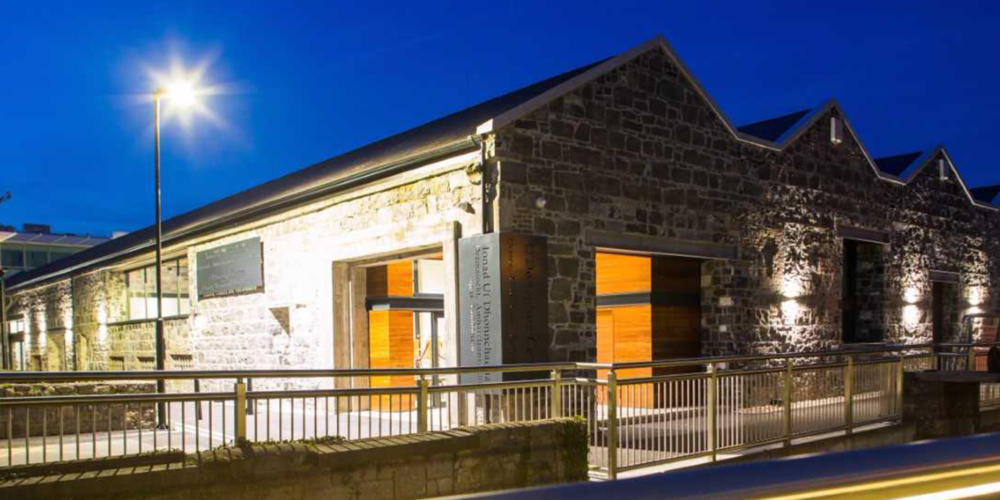
NUIG to teach researchers how to start companies
By Aoileann Ní Bhroin
Posted: 22 September, 2017
The National University of Ireland Galway is joining with partners in Spain (IESE Business School, VentureHub), Italy (RomaTre, Translated.net) and Belgium (European Young Innovators Forum) to deliver an Erasmus+ Knowledge Alliance worth nearly €1m. Entitled STARTED (STArtup skills for Researchers and innovaTors in Entrepreneurship Development), the project will be co-ordinated by Dr. John Breslin, Programme Director of TechInnovate, an innovation initiative at the University where teams identify real needs in a certain domain and invent/implement solutions.
John comments “The aim of the STARTED project is to teach researchers and innovators in R&D organisations (HEIs, corporates, etc.) how to create startups/spinouts/subsidiaries.” He adds “This will be through a combination of training in six European regions* with relatively high unemployment and relatively high R&D as a % of GDP, and of resources delivered via an online platform (our proposed “European Research-to-Startup Centre”). The STARTED project starts 1/1/2018, which lines up nicely with the North West/West of Ireland being European Entrepreneurial Region in 2018, and builds on our previous intrapreneurship training activities at TechInnovate.”
* Based on data from Eurostat on the employment rates in all 271 NUTS 2 regions, and the R&D levels in those same regions (total intramural R&D expenditure (GERD) as a percentage of gross domestic product (GDP)), we examined the European regions that had some of the lowest levels of employment (< 60 %) in all of the EU-28 countries, despite having medium-to-high investment in R&D (> 1.5% of GDP). The data is from 2013, which was the most recent year for which overlapping data points were available. There are six such regions that meet these criteria: Border, Midland and Western (Ireland); Bruxelles-Brussels; Cataluña; Languedoc-Roussillon; Lazio; Liège.
Further Information
STARTED: STArtup skills for Researchers and innovaTors in Entrepreneurship Development
Research innovations often remain locked within research organisations (HEIs/research institutes and research-active businesses), never making their way into commercial startups or new business units. Leveraging these innovations should be a priority for such institutions. However, due to a dearth of entrepreneurial skillsets, researchers have little understanding about: (1) how to bring these innovations to market; (2) how to generate revenue; or (3) how to create important new areas for sustainable employment.
The STARTED project will put in place a project-based learning approach for developing entrepreneurial skills (and spirit) in researchers, to foster interactions between stakeholders in R&D innovation, and to guide the transfer of innovative research projects through to becoming robust startup opportunities. The mission is to teach more researchers how to create companies.
This project will enable the setting up of a European Research-to-Startup Centre (ERSC) supported by a shared web platform which will centralise ad hoc learning and training contents/tools/guidelines to create/help future entrepreneurs/intrapreneurs. Dedicated modules to promote interactions with R&D organisations, technical centres or business angels (ResearchInno database and forum) will be available to support participants. The scope of dissemination in this project is far-reaching considering the imperative of national R&D bodies and the support of European startup organisations.
The key benefits for European society are: the creation of sustainable bridges between research organisations and startup ecosystems; the development of entrepreneurial skills through guided self-learning; an increase in researcher employability by IDEs (innovation-driven enterprises); and an improvement in innovation transfer to businesses in a variety of sectors in search of competitiveness enhancement (agriculture, tourism, sports, etc.).
Partners:
- IESE: IESE Business School, the graduate business school of the University of Navarra, is widely recognised as one of the world’s leading international business schools.
- EYIF: European Young Innovators Forum is an independent, non-profit, pan-European, bottom-up association whose mission is to empower young innovators to play a transformative role in Europe’s future and changing the mindset for innovation in Europe.
- RomaTre: The Università degli Studi “Roma Tre” (Roma Tre University) has been active for 26 years. and represents a central point of reference in the Italian academic scene at both local and national level, hosting nearly 40,000 students.
- Translated.net: Founded in 1999 by a linguist and a computer scientist with the aim of exploiting technology to increase the quality of human translation, while reducing its turnaround time and cost. Since its conception, Translated has closed all fiscal years with a net profit and counts on a team of 231,917 professional, native-language translators, and a vast portfolio of customers.
- VentureHub: A group of entrepreneurs and investors with a strong interest in entrepreneurship. They have over 30 years of accumulated experience with leading institutions in supporting entrepreneurs at different stages of growth on several continents, such as IESE Business School, BCN Activa and The Kauffman Foundation.


